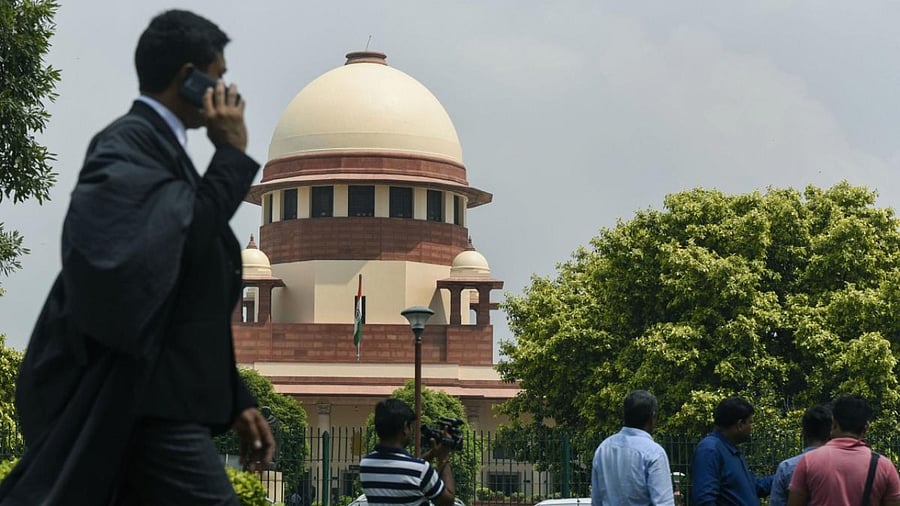
The Supreme Court has said if there has been a benefit conferred on one or a set of people, without legal basis or justification, that advantage cannot multiply, or be relied upon as a principle of parity or equality.
A bench of Justices U U Lalit, S Ravindra Bhat and Bela M Trivedi dismissed a set of appeals filed by a group of workers for absorption in Tamil Nadu Generation and Distribution Corporation Ltd, on the basis of previous concession granted by the public sector undertaking.
"Fairness demands that public bodies, as model employers, do not pursue untenable submissions. A public employer, whose conduct is questioned, and who has succeeded on the merits of the case before the lower forum to voluntarily agree, in an unreasoned manner, to a compromise. The harm and deleterious effect of such conduct is to prioritise the claim of those before the court," the bench said.
The top court said those woke up after the concession order during the proceedings before the High Court cannot claim the benefit of the exception. The compromise between the government undertaking with the other workers cannot be said of binding precedent, the top court added.
"A principle, axiomatic in this country’s constitutional lore is that there is no negative equality. In other words, if there has been a benefit or advantage conferred on one or a set of people, without legal basis or justification, that benefit cannot multiply, or be relied upon as a principle of parity or equality," Justice Bhat, who authored the judgement on behalf of the bench, said.
In the case, the public undertaking issued advertisement, calling for eligible candidates, to apply for the post of helper or trainee in 2012. A plea was filed in the High Court for relaxation in upper age limit. The HC granted such exemption. Finally, recruitment was started and appointments were made. Some unsuccessful candidates approached the High Court which directed appointment of 84 candidates purely on the basis of compromise.
The present aggrieved candidates and several others sought piggyback on the basis of the compromise order, arguing that they were similarly situated.
The top court, however, rejected their claim, saying the compromise was not only unjustified, it was contrary to law and public interest as well.
Watch latest videos by DH here:

